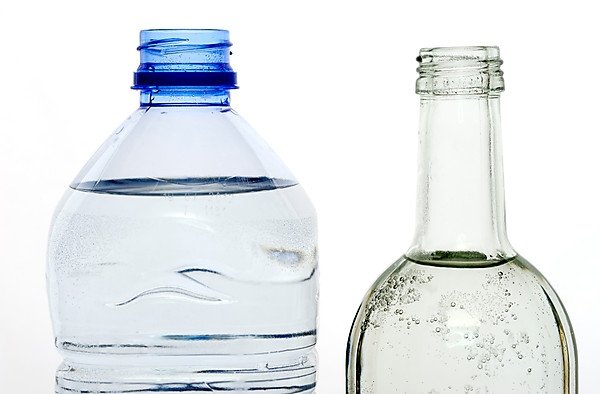 Loading... Please wait...
Loading... Please wait...Why Glass Is Better Than Plastic?
Posted on 23rd Nov 2014
Disposable drinking bottles come in all shapes and sizes. They can be made of plastic, glass, or aluminum. From an environmental point of view, most people prefer glass bottles. These are much safer for human health than plastic containers. The old fashioned glass is eco-friendly, looks better, and doesn’t contain any harmful chemicals such as PVC, BPA, or polycarbonate.

Plastic vs. Glass
Most plastic water bottles are manufactured from polyethylene terephthalate (PET), which is extracted from non-renewable petroleum. They can also contain bisphenol A (BPA), a material that can be found in auto parts, electronics and other consumer products. It takes more than 500 years for plastic containers to break down.
Bisphenol A has been linked to a high risk of endometriosis, ovarian cysts, cancer, and infertility. Recent studies suggest that BPA exposure may cause diabetes and heart disease. Additionally, many plastics can leach chemicals into water.
Made from natural materials, glass is one of the very few packaging materials considered safe by the FDA. It's easy to clean, recyclable, and lasts longer. It also holds taste of water or food better than any other material. The only downside is that glass bottles are more fragile than plastic and steel containers. Some companies selling bottled water are now using tempered glass or double walled Borosilicate Glass (Pyrex), which are more durable.
Why Glass?
There are plenty of reasons to switch from plastic to glass water bottles. First of all, no metallic or plastic taste will affect your beverage. Secondly, glass is free of BPA and other chemicals. For this reason, it's often used in baby bottles. This material is infinitely recyclable and safer for the environment. Many people claim that food and drink from glass containers taste better.
Making the switch from plastic to glass bottles is one of the best things you can do for your health. Although you can't avoid plastic containers all the time, at least try to use glass water bottles.
